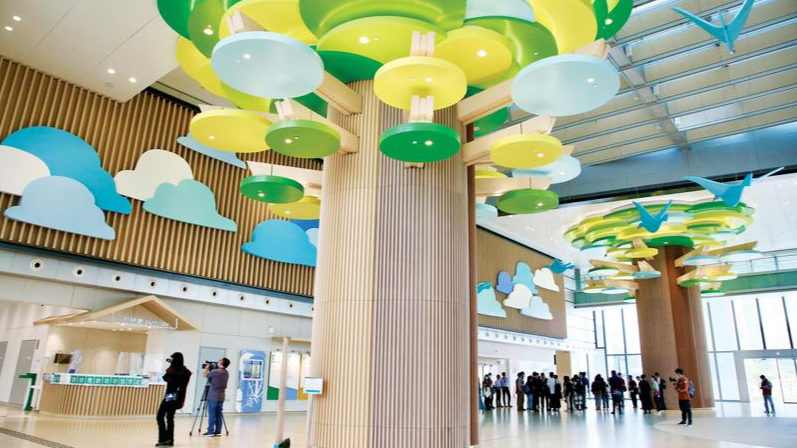
Hong Kong's health chief said on Saturday that the special administrative region is developing a rare disease center in collaboration with the Chinese mainland.
Speaking to the media after attending a radio program this morning, Professor Lo Chung-mau said the center will be situated in the Hong Kong Children's Hospital (HKCH), where there are specialist genetic disease experts.
Pointing out that rare diseases are never rare on the mainland with the huge population of over 1.4 billion people, he said that is why there is a rare disease center at the HKCH, with geneticists and clinicians who are experts in these genetic diseases, in collaboration with our Hong Kong Genome Institute.
“Hopefully in the future, our babies and kids with diseases which are genetically-related or extreme diseases like cancer, and those who require cardiovascular surgeries or neurosurgeries, will be given the best of care in Hong Kong Children's Hospital,” he added.
The health chief thanked all parties, including the mainland bureaus and departments which facilitated the smooth delivery of a cord blood hematopoietic stem cell unit from Guangdong to Hong Kong on Thursday for the treatment of a five-year-old girl suffering from thalassemia.
READ MORE: Health Bureau thanks mainland for second cord blood transfer
“We are also very glad that our team of Hong Kong Children Hospital for hematopoietic stem cell transplant was highly professional and could provide services to the five-year-old kid who suffered from thalassemia, which is a congenital disease affecting the blood production and causing severe anemia.”
In the past, the only treatment for thalassemia patients was blood transfusions every month or so with iron chelation therapy, but many patients could only live to 20 or 30 years of age, the health chief explained.
“With stem cell transplant therapy, the disease will be cured with the objective that patients would not need a blood transfusion anymore, so they would be able to return to their normal life,” he said.
Therapies including stem cell transplant therapy, cell therapy such as chimeric antigen receptor T-cell therapy and genetic therapy, are the objectives of Hong Kong's future development as a medical innovation hub, he said.
ALSO READ: Exchanging the hope of life
Stressing that the HKCH is the center of excellence for all these tertiary and quaternary services, he said: “We are concentrating all the expertise as well as the hardware. All these facilities are catering for pediatric children use.”


